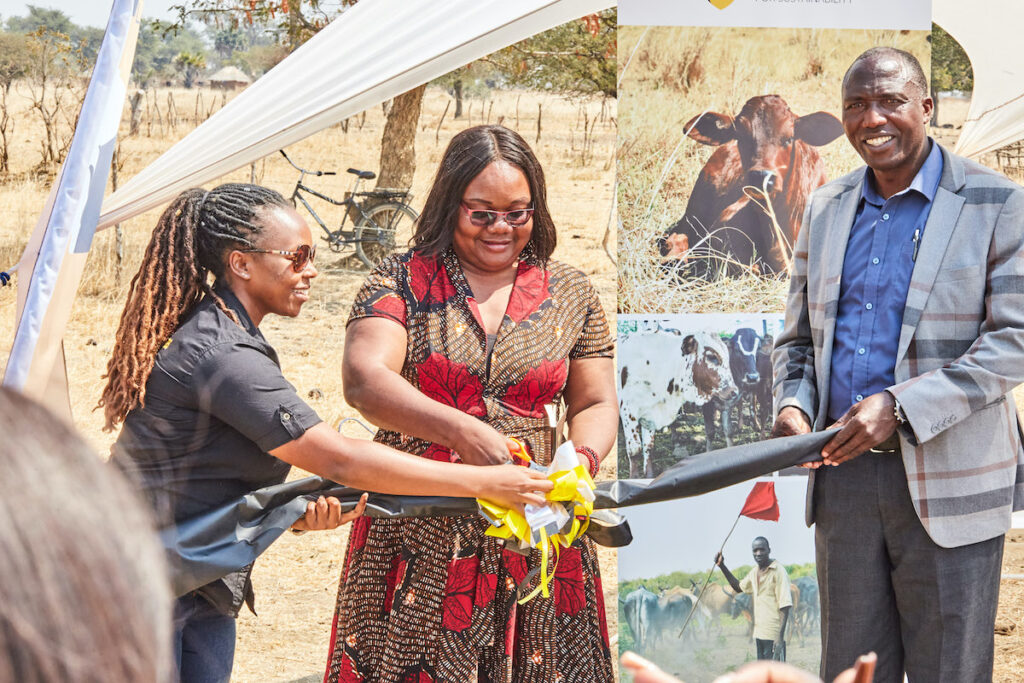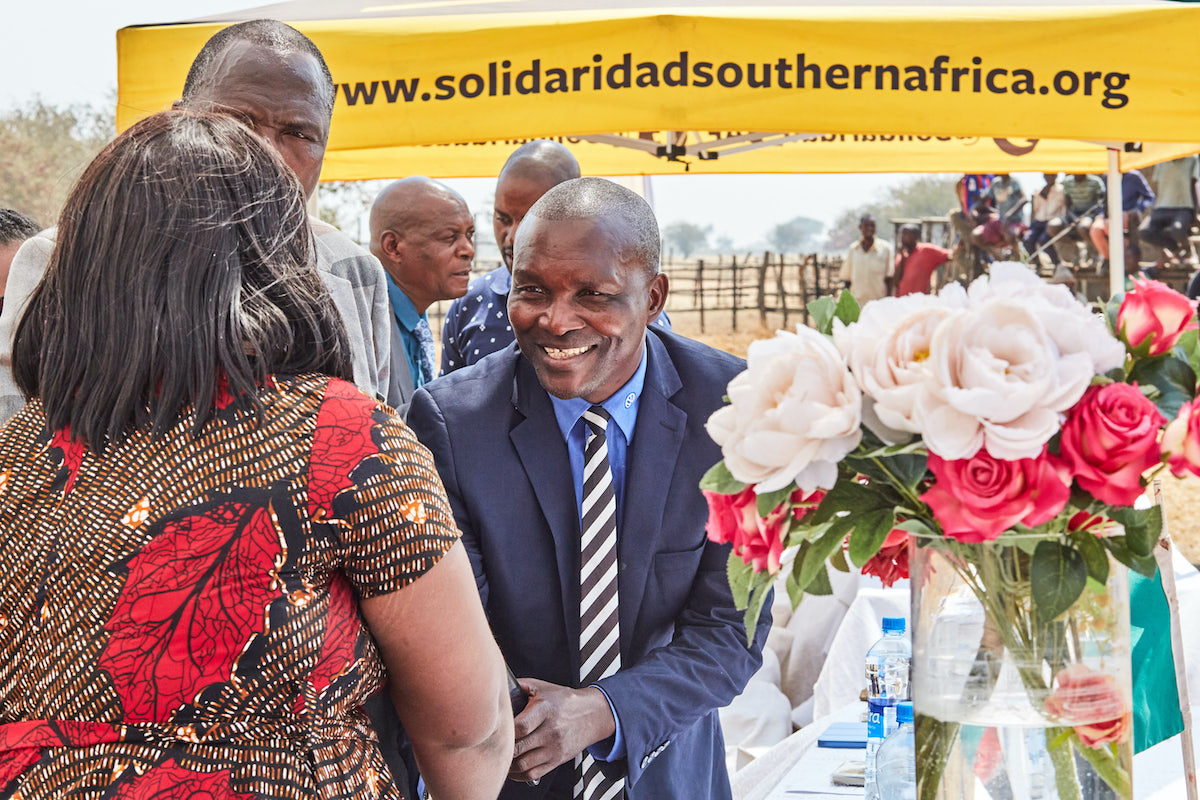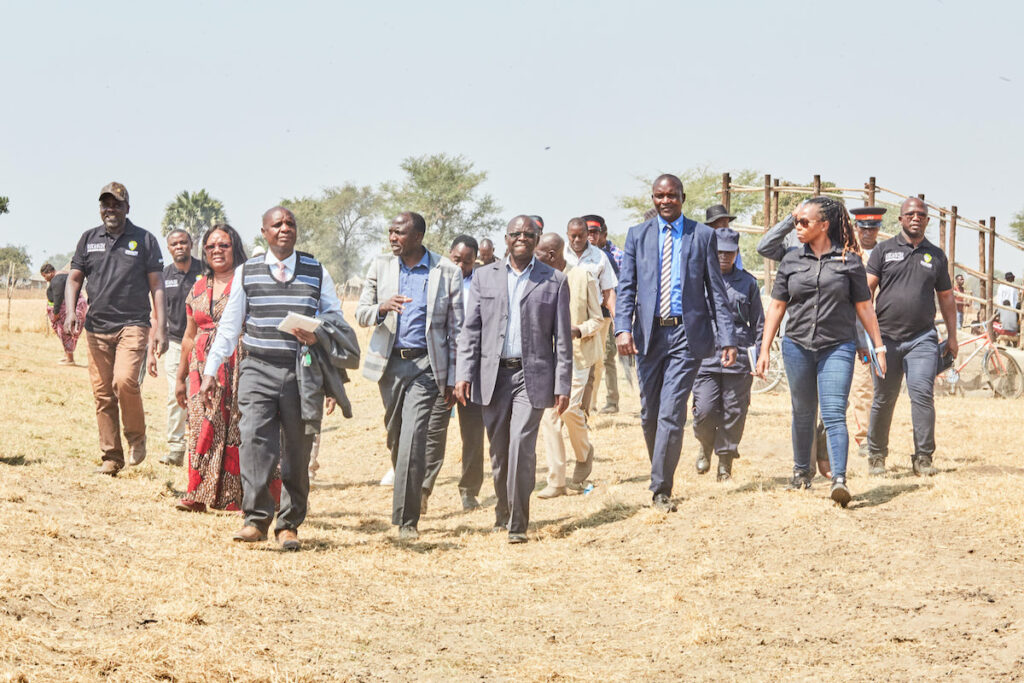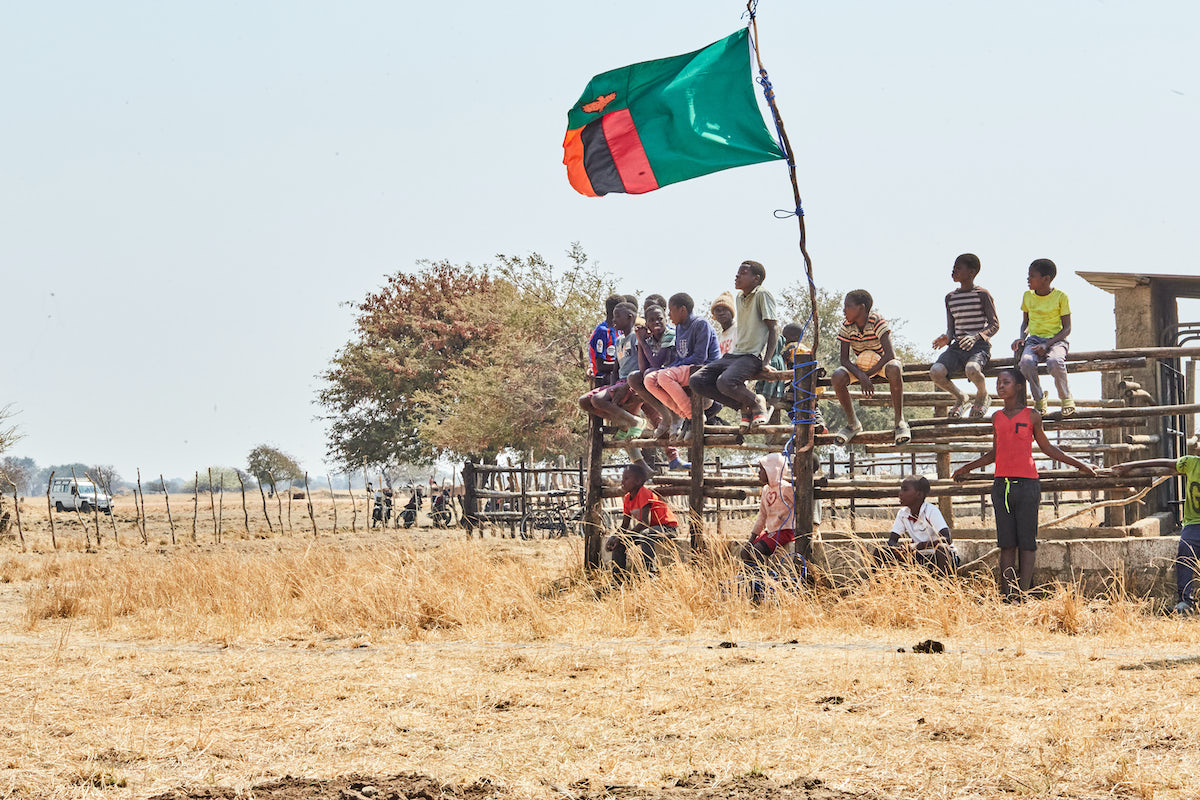The livestock sector plays a vital role in Zambia’s economy. It accounts for 3.2 percent of the GDP and it serves as the primary income source for smallholder farmers, who supply 80 percent of the country’s meat. However, Zambia’s herding communities and grassland ecosystems are at risk.
The dangers include:
- Climate change and poor animal husbandry have led to a decline in livestock quality and productivity.
- Uncontrolled grazing has degraded the landscape and affected flood regulation, water infiltration, carbon sequestration, and habitat preservation.
- Farmers lack access to markets and now sell their livestock at lower prices, leading to financial losses while undercutting their contributions to Zambia’s development.
We’ve witnessed the strain on our farmers as they strive to preserve the nutritional value of rangeland facing reduced livestock production and increased disease prevalence. These challenges are not isolated instances; they rip through the entire fabric of our communities.
Deputy Permanent Secretary of the Southern Province, Yolanta Mutyambe.

An Inspiration for Zambia’s Livestock Sector
Solidaridad’s Hooves for Sustainability programme is rooted in its successful Nambola Livestock Project. From 2016 to 2022 in southern Zambia, Solidaridad worked to improve pasture management, disease management, soil fertility, and carbon sequestration. It facilitated community development through engagement with traditional leadership, handmade leathercraft training, and the promotion of village banking to encourage inclusive banking practices, while also increasing smallholder access to financial resources.
The Nambola project was a comprehensive and committed effort to empower smallholder farmers, and also restored 80,000 hectares of grassland and improved animal health. The programme had a direct and beneficial impact on the livelihoods of 569 smallholder livestock producers, while bringing indirect benefits to 5,800 smallholder farmers in Zambia. Despite its successes, the Nambola project faced resource constraints and the scale of the project was limited.
Passing the Baton
To replicate and expand the impacts of the Nambola Project across all of Zambia, Solidaridad launched “Hooves for Sustainability” (H4S) in August of 2023. Funded by the Leona M. and Harry B. Helmsley Charitable Trust, this new livestock project aims to enhance the climate resilience of 2,000 livestock producers in the Southern Province of Zambia. The target area is the grassland ecosystems of the Kafue Flats, focusing on the Mazabuka, Monze, and Namwala districts, which together house over 20 percent of the nation’s livestock herd.

This project is not just about livestock; it’s about resilience, livelihoods, and the future prosperity of our nation. Sustainable practices, infrastructure, and investments in human and financial assets will pave the way for a resilient and prosperous future.
Deputy Permanent Secretary of the Southern Province, Yolanta Mutyambe
The project’s goal is to improve productivity (i.e. the calving rate) by at least 80 percent, increase income by at least 30 percent, and improve access to finance and productive assets for the targeted livestock producers. Sheila Garakara, the Zambia Country Manager for Solidaridad says, “The overarching objective of the project is to improve market access for beef and other livestock by-products, fostering economic growth in the country.”
COLLABORATING FOR SUCCESS
To achieve its ambitious goals, the H4S project takes an inclusive approach and includes collaboration with government, traditional leadership, farmers, and local communities. The project will be delivered through five workstreams, which will build capacity, encourage investment, promote adoption, create opportunities to scale-up the project, and establish a policy environment that enables success.
Examples of Solidaridad’s H4S efforts will include: learning programs on sustainable livestock practices for smallholder farmers and other stakeholders; creating accessible financial resources for farmers; and finally, encouraging the use of traditional, as well as the new digital markets, to ensure appropriate pricing for livestock sales. In addition to these efforts, Solidaridad will continue to explore value-addition opportunities, and training in leather production, fodder management, and other potential avenues in order to ensure sustainable income streams for the farmers.
Solidaridad’s Sheila Garaka says, “In the long term, we anticipate that this project will significantly enhance smallholder livelihoods, not only within the province, but also have a ripple effect in neighbouring provinces.” At Solidaridad, we aspire to create a resilient and prosperous future for Zambia’s livestock sector. The Hooves for Sustainability project is part of our ongoing effort to help develop a strong foundation for sustainable livestock management in Zambia, while supporting the country’s many vibrant communities.


